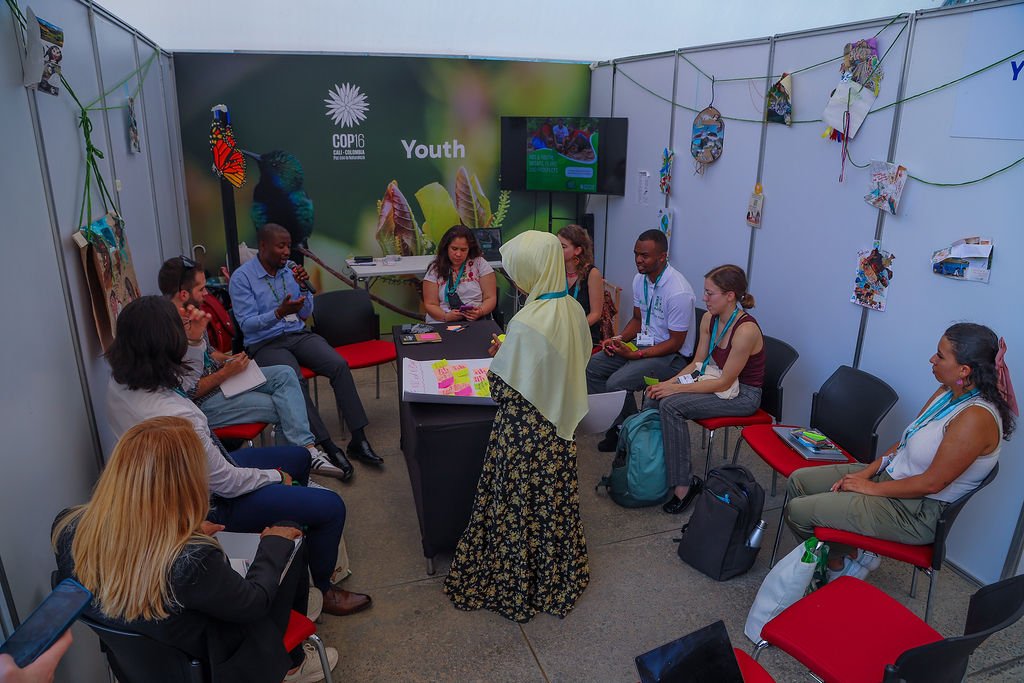At COP27, Y4N and YEE joined forces to facilitate a knowledge exchange amongst youth peers globally on what climate adaptation is and how youth experience it, with an emphasis on amplifying diverse youth perspectives and environmental justice.
Juventudes Líderes en Soluciones Basadas en la Naturaleza para la Adaptación
Previo a la Cumbre de Adaptación Global, la Red Global de Jóvenes por la Biodiversidad - Capítulo México en conjunto con Youth4Nature, con el apoyo del Ministerio de Medio Ambiente y Cambio Climático de Canada (ECCC) y el Programa de Acción de Soluciones Basadas en la Naturaleza (NBS) de la Comisión Global de Adaptación, organizaron un evento para discutir las oportunidades y desafíos en la ampliación de la implementación de NBS y EBA (adaptación basada en ecosistemas).
Leadership des jeunes pour les solutions d'adaptation fondées sur la nature
En avance du Sommet mondial sur l'adaptation, Youth4Nature et le Réseau mondial de la jeunesse pour la biodiversité - Mexique, avec le soutien d'Environnement et changement climatique Canada (ECCC) et du volet d'action de la Commission mondiale sur l'adaptation, ont organisé un événement pour discuter des opportunités et des défis liés à l'extension de la mise en œuvre des solutions fondées sur la nature (SfN) et de l'ABE (approaches basée sur les écosystèmes).
Youth Leadership in Nature-Based Solutions for Adaptation
In advance of the Global Adaptation Summit, Youth4Nature and The Global Youth Biodiversity Network – Mexico, with the support of Environment and Climate Change Canada (ECCC) and the Global Commission on Adaptation’s Nature-Based Solution (NBS) Action Track, organized an event to discuss the opportunities and challenges in scaling up implementation of NBS and EBA (ecosystem-based adaptation).
Statement in Response to Climate Ambition Summit
The Double-Edged Nature of Land: A Practical Analysis of the IPCC's Special Report on Climate Change and Land
“[…] the IPCC’s SRCCL shines light on interlinked global challenges like climate adaptation and mitigation, desertification, land degradation and food security, whilst suggesting land-related actions/NBS that can mutually benefit all these areas. Whilst much of the current discussion misguidedly focuses on singular individual lifestyle changes, just like with the Special Report on 1.5C, we urgently need large-scale and context-dependent action that is participatory, inclusive, multi-sectoral, and actively considers ecological, social, economic, cultural and institutional factors.”











